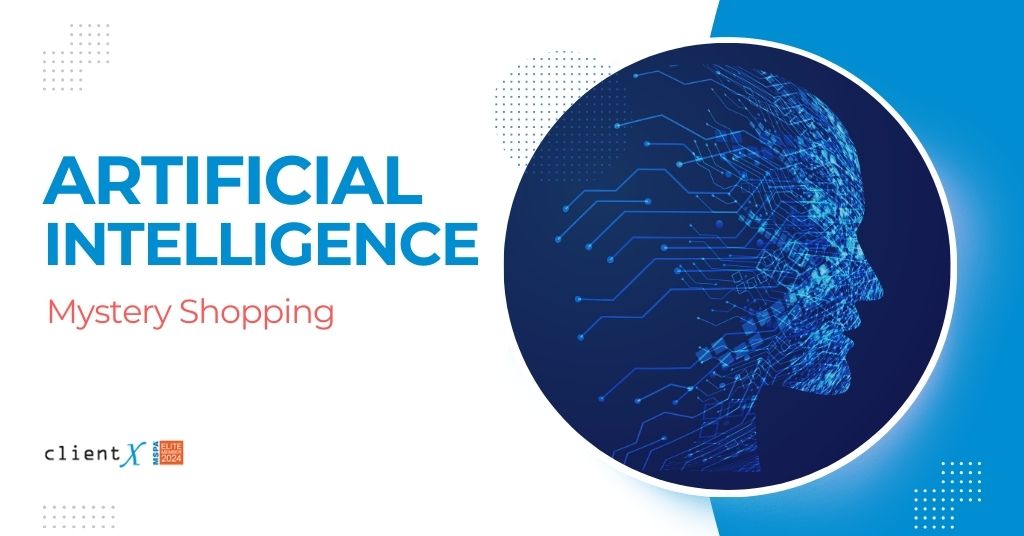AI in Action: How Artificial Intelligence Optimizes Mystery Shopping
In today’s dynamic market, understanding customer experience quality is crucial for companies aiming to stay competitive. Traditionally, mystery shopping has been a powerful tool for gathering such insights, yet it comes with limitations such as subjectivity, scalability issues, and slow feedback. Enter Artificial Intelligence (AI), which is transforming mystery shopping—not by replacing human shoppers, but by working alongside them to provide deeper and more actionable insights.
Challenges of Traditional Mystery Shopping
While mystery shoppers provide valuable firsthand experience, their evaluations can vary depending on personal perception, mood, or inconsistencies in reporting. Scaling traditional mystery shopping across multiple locations requires significant resources and time, making it difficult to collect timely feedback from every store or customer interaction. Businesses often wait days or even weeks for reports, leaving service issues unaddressed in real time. These limitations highlight the need for a more efficient, consistent, and scalable solution—one that AI can provide.
The role of AI in mystery shopping is not to replace human evaluators but to enhance their ability to deliver comprehensive results. AI can automate data collection from multiple sources—such as video, audio, and text—allowing businesses to monitor multiple customer interactions simultaneously. Tools like Natural Language Processing (NLP) can analyze conversations, chat logs, and reviews, quickly identifying patterns in customer sentiment or service quality.
AI learns from past data to predict trends, highlight service inefficiencies, and pinpoint areas where businesses can improve. It can identify specific issues, such as long wait times or customer frustration, and flag them in real time, complementing the detailed qualitative feedback provided by mystery shoppers. While AI processes large-scale data and performs analytics, human shoppers focus on nuanced interactions that only human perception can capture—such as empathy or subtle cultural cues.
Several AI-driven technologies are transforming mystery shopping:
- Natural Language Processing (NLP) analyzes customer feedback across digital and verbal channels, helping businesses understand tone and intent beyond simple positive or negative reviews.
- Machine Learning (ML) continuously refines its analysis, detecting details that mystery shoppers might overlook, such as shifts in service quality or recurring pain points in customer interactions.
- Computer Vision Tools analyze video footage to assess store cleanliness, product placement, or even staff behavior, providing real-time evaluations that allow businesses to make immediate corrections.
These technologies provide businesses with a level of insight previously unattainable through traditional methods alone.
The Continued Need for Human Mystery Shoppers
Despite AI’s significant contributions, mystery shoppers remain essential. AI excels at data analysis, but it lacks the emotional intelligence and context-based judgment that human shoppers bring. Unlike AI, human evaluators can assess factors like the warmth of a greeting, the authenticity of a conversation, or whether employees go off-script to engage with customers meaningfully.
AI can quickly identify areas where a business may be underperforming, but mystery shoppers can delve into the “why” behind these issues. For example, AI might flag long wait times as a problem, but a mystery shopper can provide context—perhaps employees are overworked or insufficiently trained—giving businesses a more complete picture.
A New Era for Mystery Shopping
AI is revolutionizing mystery shopping by enabling businesses to scale operations, reduce inconsistencies, and receive real-time insights. However, the role of human mystery shoppers is far from obsolete. Instead, AI and human intelligence together create a more powerful and efficient mystery shopping model, leveraging the strengths of both. While AI handles data-driven tasks and ensures consistency, real-world shoppers provide the empathy and intuition necessary for a full understanding of the customer experience.
In this new era, businesses can use AI to identify problem areas faster and at scale, while mystery shoppers provide the depth and insight needed to elevate customer service to the next level.

